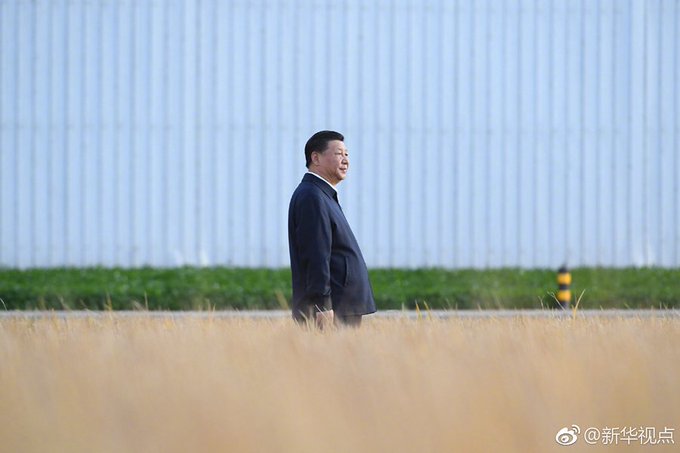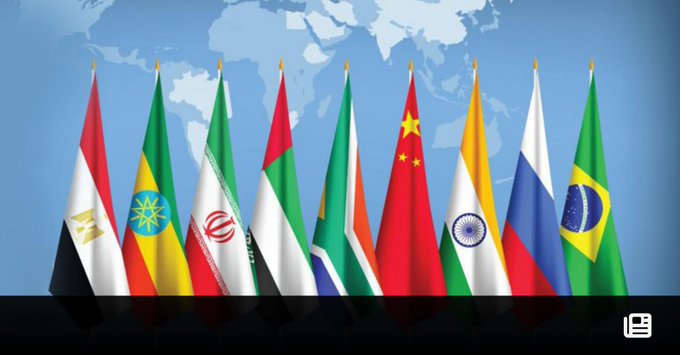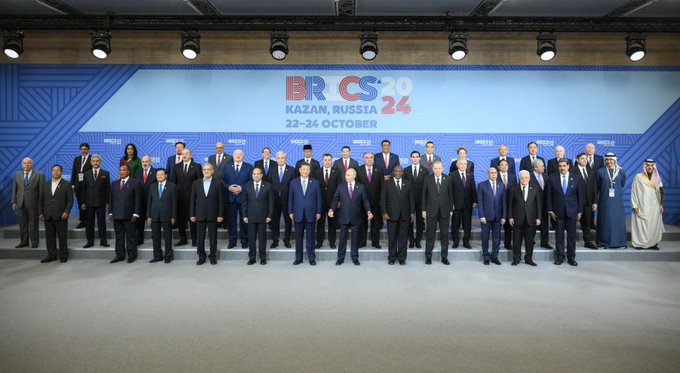The BRICS, an intergovernmental organization comprising Brazil, Russia, India, China, South Africa, Iran, Egypt, Ethiopia, and the United Arab Emirates, has officially added 13 new nations to the alliance as partner countries (not full members).
This was announced Thursday, October 24, 2024, during the BRICS Summit in Kazan, a city in Russia.
“We welcome THIRTEEN new partner countries; Vietnam, Algeria, Belarus, Bolivia, Malaysia, Nigeria, Thailand, Turkey, Cuba, Indonesia, Kazakhstan, Uganda, and Uzbekistan,” said BRICS on its X platform.
Speaking at the summit, Russian President Vladimir Putin said the U.S. dollar is still the most important tool in global finance, but its use as a political weapon undermines trust in the currency.
Leaders from 36 countries pose together for a picture during BRICS summit
He said BRICS’ GDP is significantly higher than the G7 countries. The BRICS countries account for 35% of global GDP, while the G7 only represents 30%, according to The Globalist.
Earlier, Putin proposes a plan to create a BRICS-based grain exchange. “A number of BRICS countries are among the world’s largest producers of grain, vegetables, and oilseeds. We propose opening a BRICS grain exchange, which would facilitate the formation of fair and predictable price indicators for products and raw materials, taking into account their special role in ensuring food security,” he was quoted as saying.
On his part, China’s President Xi Jinping emphasized the need for fairness, justice, and resisting external pressure. “We choose our development paths independently, jointly defend our right to development, and march in tandem toward modernization,” he noted.

Later, Putin and Jinping were seen discussing privately during the BRICS summit.
Innovation and digitalization of transport
BRICS members welcomed the Russian initiative to explore the future of BRICS countries’ transport networks and connectivity under the theme ‘Innovation and Digitalization of Transport’.
“For BRICS and friends of BRICS, let us use these projects to further connect the greater Global South. The promotion of greater regional connectivity and trade facilitation can only succeed in an environment of peace and stability,” they said in a joint statement to the press.
Gaza and other conflicts
The members said the escalation of military action by the State of Israel against Gaza, the West Bank, and Lebanon is deeply concerning.

“The world cannot afford a region-wide escalation of the conflict. We call on the international community and the UN Security Council in particular to address the spiraling conflict. Sudan enters its second year of horrific conflict and devastation. The protracted conflicts in the Sahel and Great Lakes regions in Africa persist.”
Members cited the need to find lasting solutions to these conflicts and remain committed to the peaceful resolution of all disputes through negotiation and inclusive dialogue.
“We must safeguard the ability of states to pursue independent foreign policy. Existing global institutional mechanisms need to be both strengthened and reformed to play a constructive role in international peace and security.”

“We cannot allow conflicts to continue in perpetuity. We need to find paths to peace. In our quest for a more interconnected, just, and prosperous world, we have the ability to foster an environment of peace through a focus on sustainable development. We must continue to support nations and peoples who seek to end the cycle of conflict and choose the path of peace,” the statement adds.
The summit was attended by leaders from 36 countries: India, China, Russia, Brazil, Egypt, Ethiopia, Iran, Saudi Arabia, South Africa, UAE, Armenia, Azerbaijan, Bahrain, Bangladesh, Belarus, Bolivia, Congo, Cuba, Indonesia, Kazakhstan, Kyrgyzstan, Laos, Malaysia, Mauritania, Mongolia, Nicaragua, Serbia, Sri Lanka, Tajikistan, Thailand, Turkey, Uzbekistan, Venezuela, Vietnam, Turkmenistan and Palestine.”
Source link : https://softpower.ug/uganda-becomes-first-east-african-country-to-join-brics/
Author :
Publish date : 2024-10-24 12:24:13
Copyright for syndicated content belongs to the linked Source.





